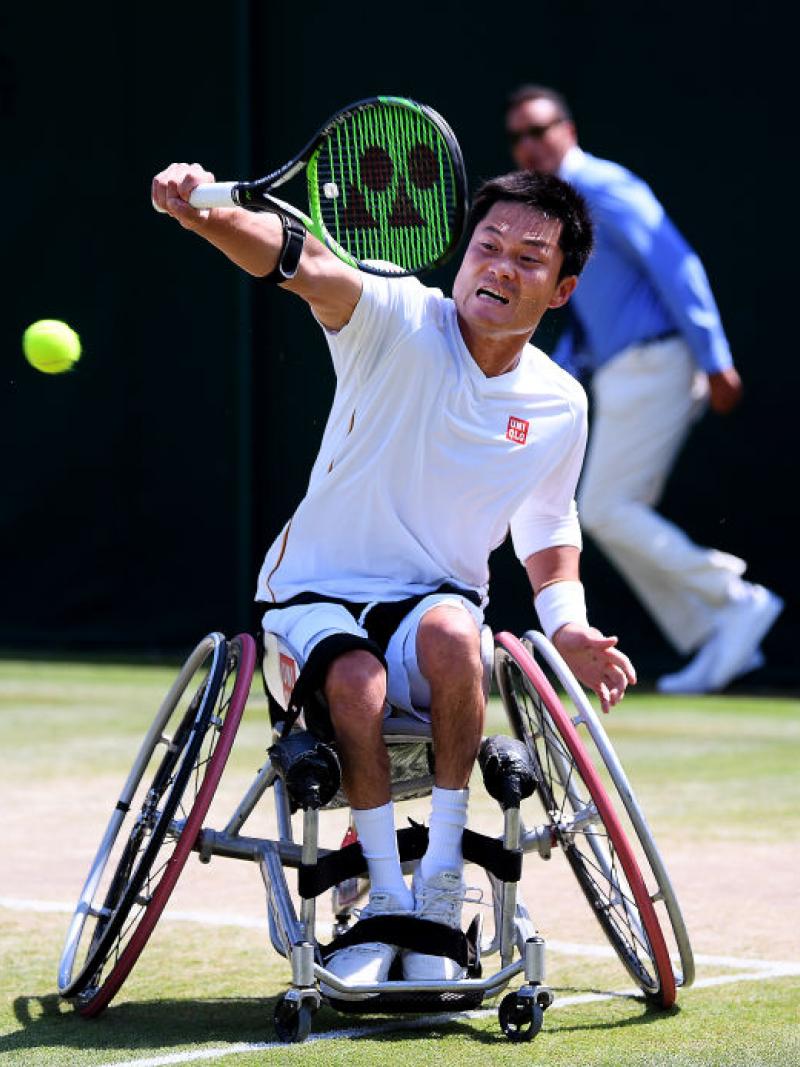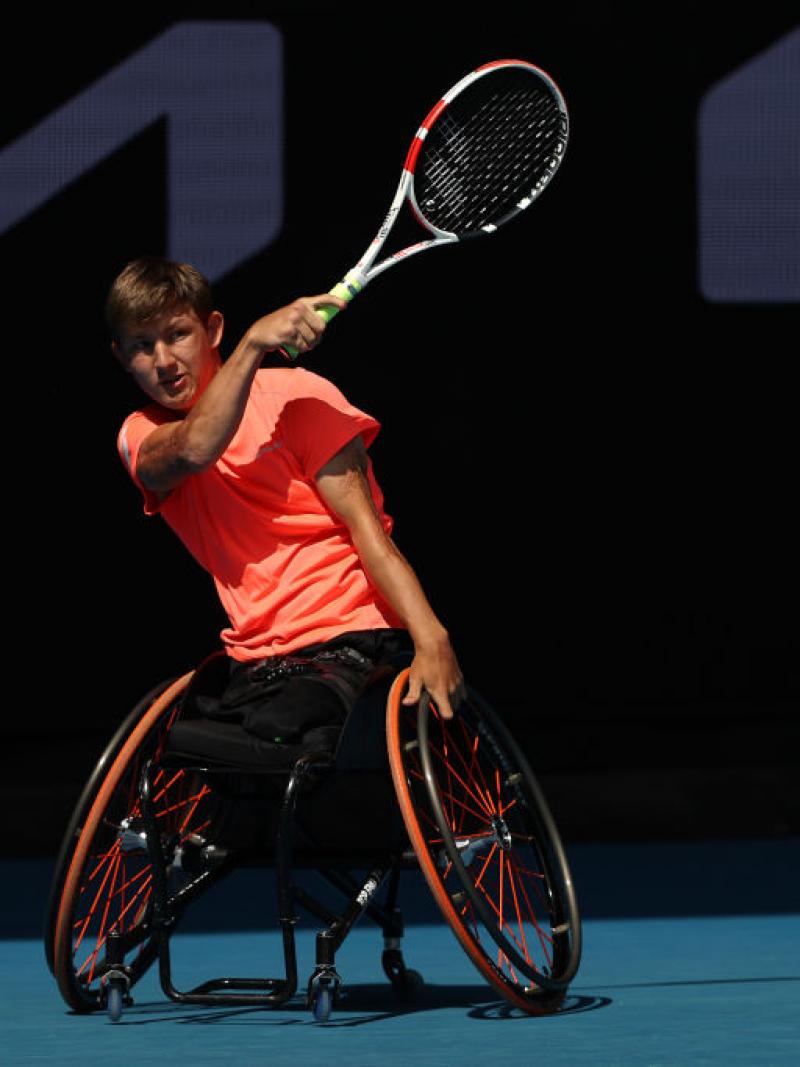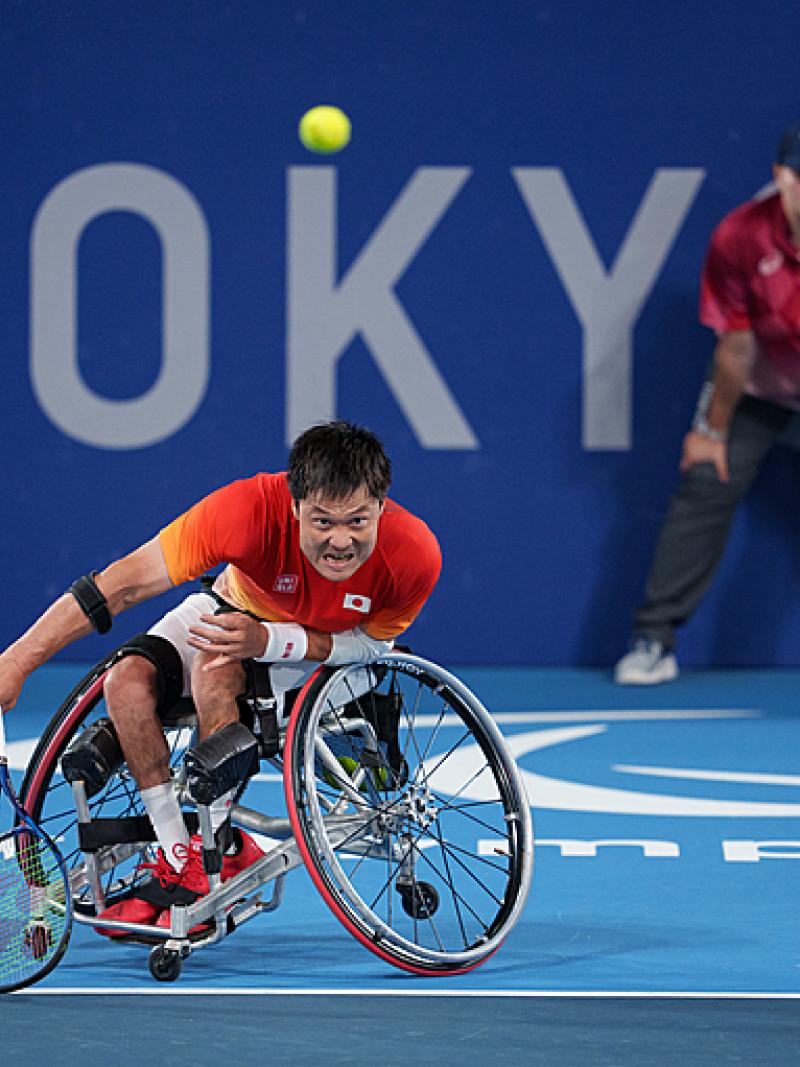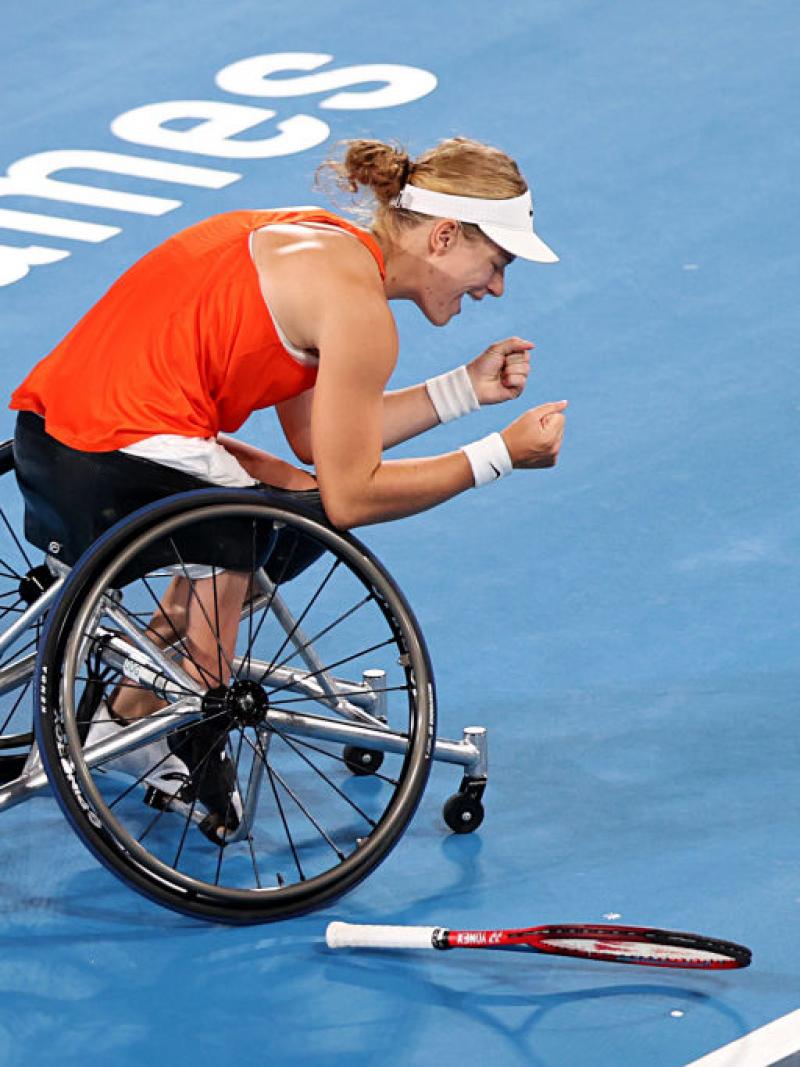Shingo Kunieda seals career Golden Slam after advice from Roger Federer
De Groot takes seventh consecutive Grand Slam women’s singles title while Schroder claims third quad singles trophy at Wimbledon 2022 11 Jul 2022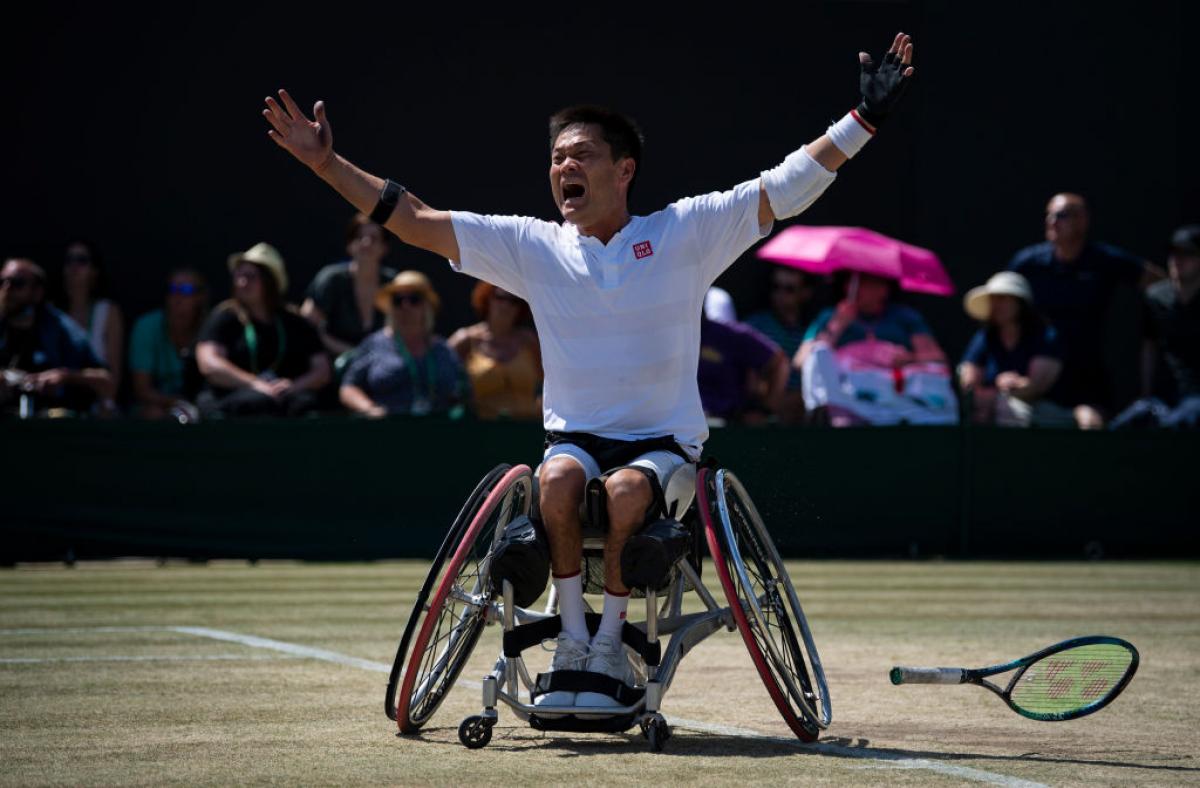
He is a colossus of the wheelchair tennis world and given the scale of his accomplishments during a glory-filled and silverware-laden career, it is barely believable that Shingo Kunieda’s reputation could be enhanced further.
However, with a single thrust of that right hand, Kunieda achieved a status never seen before and the ramifications of claiming his first men’s wheelchair singles title at Wimbledon are far-reaching and, in truth, beyond comprehension.
By defeating Great Britain's Alfie Hewett 4-6, 7-5, 7-6(5) on Sunday (10 July) in an unpredictable and error-strewn encounter – there were 26 breaks of serve during the clash – Kunieda claimed a string of impressive and career-defining records.
After conquering all before him at SW19, Kunieda became the first player to complete a career Grand Slam and indeed a career Golden Slam in men’s wheelchair singles. It was also the 50th time he has topped a Grand Slam podium across singles and doubles.
“This was a very special moment and my most special moment since Tokyo 2020,” the Japanese legend Kunieda told itftennis.com. “Tokyo was the biggest highlight of my career, and this was almost the same.
“I really wanted to get this title. At my age, I’m 38, I was thinking this might be my last chance today, so I am very happy. This is certainly my best Grand Slam title, certainly the hardest to win because of the grass.
“I have a good clay-court record but in the past, I didn’t play well on grass. However, this year I found a way to play on grass and maybe now I can say that I can play well on grass.”
Hewett had his chances and served for the match on four occasions. Kunieda, however, refused to buckle and worked his way back into the ascendency in the match tiebreak, converting the first of four match points.
“Mentality is my weapon, my biggest weapon,” said Kunieda. “If I had a tough situation today, I refused to give up and just kept saying to myself, ‘I can do it’. That’s the only way to do it. I knew I had to think that way.”
Kunieda also revealed that he sought out and received advice from a someone who knows all about winning on grass, eight-time Wimbledon champion Roger Federer whose words clearly contained nuggets of wisdom.
“Last year here, I lost in the first round to Gordon (Reid),” he added. “Then, we had a UNIQLO event and I asked a question to Roger. My question was how to play on grass and how to think when behind on grass.
“Roger said that I should attack every point and that if I made a mistake, have no regrets. He said that’s the key, to have no regrets. Today, when I made a mistake I said, ‘this is okay’. Then I immediately went to the next point and was aggressive. That was key.”
In the women’s doubles, meanwhile, there was a huge upset as Japan’s Yui Kamiji and USA’s Dana Mathewson overpowered top seeds Diede de Groot and Aniek van Koot of the Netherlands 6-1, 7-5.
For Mathewson, this was her first Grand Slam title and came five years after her only previous appearance in a Grand Slam final. It also marked a remarkable doubles debut with Kamiiji as her partner, with the 28-year-old now having seven Wimbledon doubles crowns.
Dutch triumphs
It was a special Sunday for Sam Schroder of the Netherlands too.
The 22-year-old began proceedings by claiming his third Grand Slam quad singles title by dispatching world no. 1 Niels Vink, before joining forces with his compatriot to top the doubles podium.
Schroder, who was diagnosed with colon cancer shortly after his 18th birthday, defeated Vink 7-6(5), 6-1 to add a Wimbledon crown to his Grand Slam tally, which also includes US Open and Australian Open singles crowns.
A matter of hours after his singles disappointment – and no doubt still reeling from it – Vink re-united with Schroder to seal their third Grand Slam doubles title as a pair.
Schroder and Vink, who were the top-seeded pair in the doubles, outmanoeuvred Andy Lapthorne of Great Britain and USA’s David Wagner 6-7(4), 6-2, 6-3 on Court No. 1. After his galling defeat in the singles, this handed Vink more than a modicum of consolation.
Seventh title for De Groot
Another Grand Slam, another Diede de Groot trophy picture. During Wimbledon, the perennial match-winner has once again been imperious, chalking up her seventh consecutive Grand Slam singles title with victory over Japan’s Kamiji.
Between them, De Groot and Kamiji had won 20 of the last 21 Grand Slam singles titles – Aniek van Koot, at 2019 Wimbledon, is the only other victor in that time – although their latest showdown very much went with form.
De Groot prevailed 6-4, 6-2 to add another triumph to her ever-expanding streak of victories, which now stands at 61, while she also extended her personal winning streak against Kamiji to 13 matches. All of that contributed to a fourth Wimbledon title.
The 25-year-old has now equalled the third-longest Grand Slam singles winning streak, currently held by Esther Vergeer, while she is the first player to record seven consecutive Grand Slam titles in seasons when all four Slams have hosted singles events.
In the men’s wheelchair doubles final, meanwhile, the remarkable record-breaking Grand Slam winning sequence of Great Britain’s Hewett and Gordon Reid came to an end with defeat to Argentina’s Gustavo Fernandez and Kunieda of Japan.
Fernandez and Kunieda, who were seeded second here, won 6-3, 6-1. Fernandez now has three Grand Slam doubles titles to his name and two at Wimbledon, while Kunieda has 22 overall and four at Wimbledon, although this was his first doubles triumph here since 2014.





